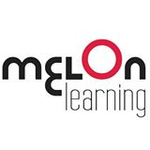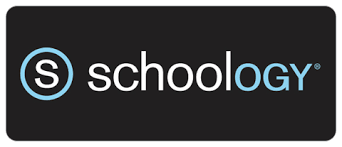Description

Melon LMS

Schoology
Comprehensive Overview: Melon LMS vs Schoology
Melon LMS and Schoology are both prominent learning management systems (LMS) designed to facilitate educational and training activities for different types of institutions and organizations. Here’s a comprehensive overview of both:
Melon LMS
a) Primary Functions and Target Markets:
- Primary Functions:
- Course Management: Melon LMS offers a robust platform for creating and managing course content. It supports various multimedia formats and assessment types.
- Interactive Learning: Includes tools for discussions, quizzes, and assignments to enhance student engagement.
- Tracking and Reporting: Allows educators to monitor progress and generate detailed performance reports.
- Customization and Integration: Supports third-party integrations and allows customization to fit specific organizational needs.
- Target Markets:
- Corporate Sector: Primarily aimed at businesses and organizations looking for training and development solutions.
- Professional Training Providers: Entities that offer specialized training programs across various industries.
- Higher Education: Although not its primary focus, it is used by some universities and colleges for professional courses.
b) Market Share and User Base:
- Melon LMS is more niche compared to major education-focused LMS solutions but has a strong presence in the corporate training sector. The user base is smaller but highly targeted, focusing on companies looking for customizable and scalable training solutions.
c) Key Differentiating Factors:
- Focus on Corporate Training: Unlike Schoology, Melon LMS is optimized for corporate training environments.
- Customization: Offers greater flexibility in terms of customization for businesses.
Schoology
a) Primary Functions and Target Markets:
- Primary Functions:
- Course Management: Facilitates the creation and organization of educational content for K-12 and higher education.
- Collaboration Tools: Features social elements similar to a social network, including discussion boards and messaging.
- Assessment and Grades: Supports robust assessment tools and integrates grading systems.
- Mobile Learning: Offers a strong mobile platform for on-the-go access to course materials and collaboration.
- Target Markets:
- K-12 Schools: Predominantly used by school districts and educators for classroom management.
- Higher Education: Used by colleges and universities, especially for online and blended learning environments.
b) Market Share and User Base:
- Schoology is widely adopted in the K-12 sector and has a substantial market share within this space. It is one of the leading LMS solutions for primary and secondary education, with millions of users globally.
c) Key Differentiating Factors:
- K-12 Focus: Schoology has been designed specifically with the needs of K-12 in mind, supporting state standards and incorporating tools suited for younger students.
- Social Learning Environment: The platform's social networking-style functionality encourages collaboration and interaction among students and teachers.
- Broad Adoption in Education: Enjoys a strong presence and reputation in the educational sector, making it a preferred choice for schools and districts.
Comparison Summary
- Market Orientation: Melon LMS is more corporate-focused while Schoology is education-centric, specifically K-12.
- Functionality: Both provide robust LMS functionalities, but Schoology is better suited for academic learning environments with built-in social learning tools, whereas Melon LMS focuses more on professional development and corporate training with customizable solutions.
- User Base: Schoology commands a larger user base in the K-12 educational sector, while Melon LMS is favored by corporate clients for internal and external training programs.
Each platform serves distinct needs and markets, with Schoology excelling in educational settings and Melon LMS addressing the requirements of corporate training and development.
Contact Info

Year founded :
Not Available
Not Available
Not Available
Not Available
Not Available

Year founded :
2009
Not Available
Not Available
United States
Not Available
Feature Similarity Breakdown: Melon LMS, Schoology
Melon LMS and Schoology are both popular learning management systems (LMS) designed to provide educational institutions and corporate environments with tools for managing and delivering educational content. Here's a breakdown of their feature similarities and differences:
a) Core Features in Common
-
Course Management:
- Both platforms offer robust course creation and management tools, allowing instructors to develop and organize courses, upload materials, and design curricula.
-
Assessment and Quizzes:
- Both LMSs provide functionalities for creating and administering quizzes and tests, along with tools to manage assignments and track student progress.
-
Collaborative Tools:
- They offer discussion boards, chatrooms, and other communication tools to facilitate interaction and collaboration among students and teachers.
-
Gradebooks and Reporting:
- Both platforms have built-in gradebooks that enable educators to track student performance and progress. They also offer reporting features to analyze data and outcomes.
-
Content Management:
- Users can upload various types of content (documents, videos, links) to their courses and organize them within the platform.
-
Mobile Access:
- Both support accessibility on mobile devices, ensuring that students and educators can connect and manage their coursework on-the-go.
b) User Interface Comparison
-
Schoology:
- Schoology's interface is designed to be intuitive for K-12 education, with a layout that resembles a social networking site, which can be familiar and engaging for students. It emphasizes ease of use with a clean and organized dashboard, providing quick access to courses, groups, assignments, and messages.
-
Melon LMS:
- Melon LMS is often designed with a corporate audience in mind, though it is also adaptable for educational contexts. Its interface is typically straightforward, focusing on functionality and efficiency. While it may not have the social network feel of Schoology, it aims to be user-friendly and accessible with customizable dashboards that cater to organizational needs.
c) Unique Features
-
Schoology:
- Integration with SIS and Third-parties: Schoology supports a wide range of integrations with Student Information Systems and other educational tools, which can be a significant advantage for syncing data and enhancing functionality.
- Networking Capabilities: Schoology offers unique networking features that allow users to connect with other educators, share resources, and collaborate beyond the confines of their own institution.
- Parent Portal: Schoology provides a portal specifically designed for parents to track their children's progress and activities within the platform.
-
Melon LMS:
- Corporate Training Features: Melon LMS often includes features tailored for professional training, such as competency management, certification tracking, and compliance training tools.
- Customization and Branding: Melon LMS can offer extensive customization options for organizations looking to brand their LMS environment, which can be particularly important for corporate clients.
- SCORM/AICC Compliant: While both may support standards like SCORM, Melon LMS often emphasizes its comprehensive compliance, which is critical for corporate e-learning solutions.
Each LMS has particular strengths, depending on the target audience. Schoology is often favored for educational settings, particularly K-12, due to its engaging interface and educational integrations. Meanwhile, Melon LMS shines in corporate and adult learning environments where customization and compliance are paramount.
Features

Comprehensive Course Management
Support and Resources
User-Friendly Interface
Performance Tracking
Engagement and Collaboration

Communication Tools
Assessment and Analytics
Course Management
Resources and Materials
Integration and Customization
Best Fit Use Cases: Melon LMS, Schoology
When evaluating learning management systems (LMS) like Melon LMS and Schoology, it’s important to consider their strengths and how they align with specific use cases, industry verticals, and company sizes. Below is a breakdown of scenarios where each platform excels:
Melon LMS
a) Best Fit Use Cases for Melon LMS:
-
Corporate Training:
- Melon LMS is particularly effective for businesses focused on employee training and development. Its features are often tailored to the needs of onboarding, compliance training, skill development, and performance tracking.
-
Customizable Learning Paths:
- Companies that require highly customizable training programs can benefit from Melon LMS’s flexibility in creating specific learning paths and its capability to integrate various content formats.
-
Small to Medium Enterprises:
- SMEs looking for a scalable solution that can grow with their needs often find Melon LMS appealing due to its cost-effectiveness and ease of use.
-
Blended Learning Environments:
- This platform supports both online and in-person training activities, making it ideal for organizations that adopt a blended learning approach to leverage classroom sessions and e-learning content.
-
Healthcare and Compliance-Heavy Industries:
- Industries with strict compliance requirements, like healthcare, find Melon LMS useful for maintaining and updating records of certification and compliance training.
Schoology
b) Best Fit Use Cases for Schoology:
-
K-12 Education:
- Schoology is widely used in K-12 educational institutions, where it enhances classroom learning by providing tools for teachers to create, manage, and share academic content easily.
-
Higher Education:
- Colleges and universities use Schoology to facilitate course management, grading, and collaborative learning, benefiting from its strong focus on academic environments.
-
Online and Hybrid Learning:
- Schoology is advantageous for schools that have embraced online or hybrid learning models due to its robust communication features, ease of content distribution, and student engagement tracking.
-
District-Wide Implementations:
- School systems that require a cohesive platform across multiple schools or districts often choose Schoology for its ability to centralize learning materials, resources, and administrative oversight.
-
Project-Based Learning:
- Schoology supports project-based and competency-based learning, making it suitable for progressive educational programs that emphasize practical, student-led learning.
Industry Verticals and Company Sizes:
Melon LMS:
- Industry Verticals:
- Primarily focuses on corporate sectors such as finance, healthcare, manufacturing, and any industry requiring continuous professional development and compliance.
- Company Size:
- While scalable for larger corporations, Melon LMS is highly advantageous for small to medium-sized businesses due to its cost efficiency and straightforward implementation.
Schoology:
- Industry Verticals:
- Education-centric, serving primarily K-12 and higher education sectors. Its features are tailored to meet the specific needs of teachers, students, administrators, and parents.
- Company Size:
- Best suited for educational institutions of all sizes, from small private schools to large public school districts and universities, benefiting from its scalability across various educational settings.
In conclusion, Melon LMS shines in professional environments where customization, scalability, and compliance are critical, whereas Schoology excels in educational landscapes due to its strong focus on enhancing academic and collaborative learning experiences.
Pricing

Pricing Not Available

Pricing Not Available
Metrics History
Metrics History
Comparing undefined across companies
Conclusion & Final Verdict: Melon LMS vs Schoology
To provide a conclusion and final verdict on Melon LMS and Schoology, we need to consider various factors such as ease of use, features, pricing, customer support, and user feedback. Here’s a structured comparison and recommendation:
a) Best Overall Value
Overall Best Value: Schoology
Schoology tends to offer better overall value for most educational institutions due to its comprehensive feature set tailored for educational environments, wide adoption, and robust support system. It is tried and tested, providing a reliable platform for K-12 and higher education with numerous integrations and an active community.
b) Pros and Cons
Melon LMS:
-
Pros:
- Simplicity and Ease of Use: Melon LMS typically features a user-friendly interface, making it easy for educators and students to navigate and utilize.
- Customization Options: Allows for a good degree of customization depending on institutional needs.
- Scalability: Designed to adapt as an institution grows, which is an attractive feature for rapidly expanding educational setups.
-
Cons:
- Feature Limitations: May not have as extensive a list of features as Schoology, potentially lacking in advanced functionalities required by medium to large educational institutions.
- Market Presence: Lesser-known compared to larger competitors like Schoology, which might affect community support and resource availability.
Schoology:
-
Pros:
- Comprehensive Features: Extensive LMS features including course management, assessments, gradebooks, and more.
- Integration Capabilities: Easily integrates with numerous third-party applications and services.
- Community and Support: Offers a large user community and solid support channels, which is beneficial for troubleshooting and peer interactions.
-
Cons:
- Complexity: The extensive feature set can make the learning curve steeper for new users or smaller institutions.
- Cost: Depending on the package and institutional needs, it may be more expensive compared to simpler LMSs like Melon LMS.
c) Recommendations
For Users Deciding Between Melon LMS and Schoology:
-
Assess Your Institutional Needs:
- If your institution is small to medium-sized and values simplicity and ease of use, Melon LMS might be more suitable.
- If your institution requires a comprehensive feature set with advanced capabilities and plans to grow, Schoology is likely the better option.
-
Consider Budget Constraints:
- Evaluate the cost in relation to the features you will actually use. While Schoology may be costlier, the feature-complete package might justify the expense for larger institutions.
-
Evaluate Support and Community:
- Consider the size and activity level of the community and the quality of customer support. Schoology generally has a more extensive support network.
-
Test Both Platforms:
- Most LMS providers offer demos or trial periods. Utilize these opportunities to get hands-on experience with both platforms to better understand which one fits your specific use case.
Ultimately, the decision between Melon LMS and Schoology should be driven by a thorough analysis of your specific needs, budget, and the importance of features like integration and support within your institution.
Add to compare
Add similar companies




